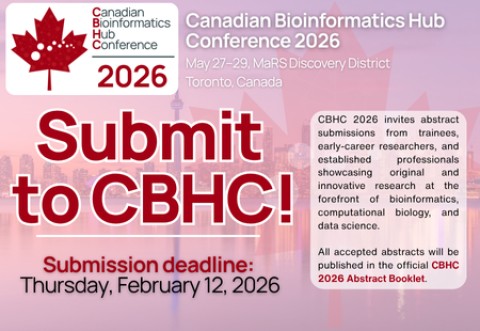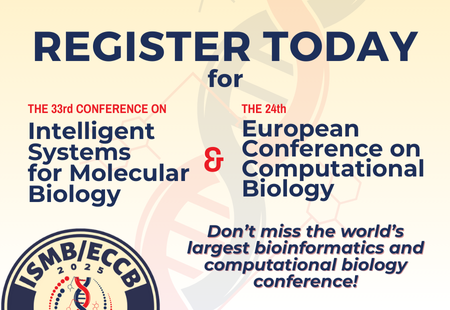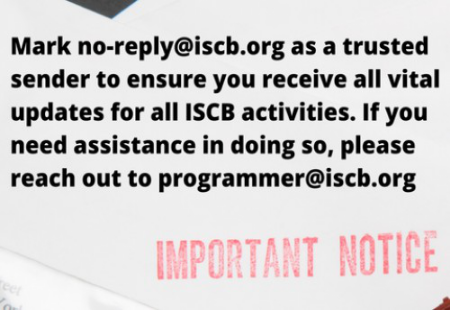Conference on Semantics in Healthcare and Life Sciences
Tutorial (hands on)
Updated March 06, 2013
 Indicates that presentation slides or other resources are available.
Indicates that presentation slides or other resources are available.
*Please note tutorial is included in registration fee. Please confirm during registration you will attend:
SADI Tutorial System Requirements:
The following MUST be installed PRIOR to the tutorial - SADI
Participants will receive a fully configured virtual machine image loaded with open source software for practical SADI exercises (writing SADI services and running SPARQL queries).
Participants must have 10GB of free space on their hard drive to uncompress the VM image.
Install VMWare player > To test the installation of VMWare player use this small image (http://www.trendsignals.net/vm/ubuntu1004t/).
SADI Workshop participants who use Apple Computers:
There is no version of VMware Player for OS X. Instead, there is a VMWare Fusion software for Mac.
The 30-day trial can be downloaded here:
https://my.vmware.com/web/vmware/evalcenter?p=vmware-fusion5
The price of the full version is $49.99.
The tutorial presenters have tested the Ubuntu VM image on a Mac machine (Mac OS 10.8.2) with licensed VMWare Fusion (Full Version). All the programs were working fine. The only thing is the memory of Virtual machine must be set to 1GB or more in the VM Settings.
We strongly recommend to download and test your VMWare Player/Fusion with small image (http://www.trendsignals.net/vm/ubuntu1004t/).
Links within this page: SADI | Semantics 101
Semantic Automated Discovery and Integration (SADI) Web Services Tutorial
Wednesday, February 27
1:00 p.m. - 5:00 p.m.
 Mark Wilkinson Presentation slides (web site)
Mark Wilkinson Presentation slides (web site)
. . . . . . . . . . . . . . . . . . . . . . . . . . . . . . . . . . . . . . . . . . . . . . . . . . . . . . . . . . . . . . . . . . . . . . . .
 Artjom Klein:
Artjom Klein:
- Introduction (pdf)
- Writing Service Demo - Part 1 (pdf)
- Writing Service Demo - Part 2 (pdf)
- Semantic Benchmarking Infrastructure for Text Mining (pdf)
The SADI tutorial will begin with an overview of the project, including the history and "philosophy" behind it, and how it fits into the broader Semantic Web and Linked Data ecosystem. We will then talk about what a SADI service "is", and the specific design patterns advocated by SADI. After seeing a few examples of pipelining services together using the SADI SPARQL client ("SHARE") attendees will then be invited to compose their own ad hoc pipelines, based on a simple template we will provide. The hands-on component will then continue, with workshop participants being shown how to extend the template through building services of their own. In particular, participants will write, and deploy, two additional services that can be fed by data from existing services. Finally, participants will add these new services into the SPARQL queries they wrote earlier.
Tutorial Attendee Profile:
The first half of the tutorial will be accessible to newcomers learning the principles underlying the SADI framework. For the hands on part of the tutorial attendees are expected to be comfortable working in the in Linux environment (editor, terminal), and have working knowledge of Java, RDF/OWL, SPARQL (highly desired) Web Services (HTTP, Tomcat), and the Protege Ontology Editor. Knowledge of Description Logics is optional.
Biographies of SADI Instructors
Dr. Mark Wilkinson
Polytechnic University of Madrid, and University of British Columbia
www.hli.ubc.ca/research/PIs/Wilkinson.html
Dr Mark Wilkinson is an Isaac Peral Distinguished Researcher at the Center for Plant Biotechnology and Genomics, Polytechnic University of Madrid, and Adjunct Professor of Medical Genetics in the Faculty of Medicine, University of British Columbia. His research over the past decade has focused on the problem of enabling bio/medical researchers to execute their own data manipulation and analysis. Much of this work has involved the application of "semantics" to both scientific data and the analytical services that operate on them. He was founder of the BioMoby Semantic Web Service interoperability framework which, at its peak, included more than 1600 bioinformatics data-sources and tools. More recently he created SADI - a set of design practices that enhance interoperability between semantic Web services - and SHARE, a novel query resolver that combines a workflow engine with a logical reasoner to dynamically generate, and execute, a data retrieval and analysis workflow in response to questions posed by the user. His work on supporting multi-lingual end-user query construction in SHARE won first prize for "Best Demonstration of Semantic Technology" at the Semantic Web Applications and Tools for Life Sciences 2010 meeting in Berlin. He is on the Editorial Board of the Journal of Biomedical Semantics, and is an invited expert for the W3C's Semantic Web in Health Care and Life Sciences Interest Group. Mark has a Ph.D. in Botany from the University of British Columbia.
Artjom Klein
Research Scientist, University of New Brunswick, Canada
www.linkedin.com/in/artjomklein
Artjom Klein is a computational linguist with a Masters degree from the University of Heidelberg, Germany. He is has many years of hands on experience in Semantic Web techniques. Recent projects involved the provision of natural language query interfaces to semantic knowledge bases and deployment of text mining services in SADI Framework. Artjom was a core developer on the C-BRASS project (Canadian Bioinformatics Resources as Semantic Services) deploying more than 200 SADI services in Dr Chris Baker's lab at UNB, Saint John.
Semantics 101 Tutorial
Wednesday, February 27
3:00 p.m. - 5:00 p.m.
This two-hour tutorial will present a practical introduction to Semantic Web technologies. We will motivate the introductions with use cases and examples, and we will also attempt to dispel some of the myths and some of the hype around the Semantic Web. The tutorial will cover the following topics:
• What is the Semantic Web? What are Semantic Web technologies? What's the difference?
• How does the Semantic Web relate to other technologies such as semantic search or text analytics/NLP?
• How are some life sciences organizations using Semantic Web technologies today?
The tutorial will also introduce the following Semantic Web technologies:
- RDF -- the foundational data model of the Semantic Web
- SPARQL -- the query language of the Semantic Web
- RDFS & OWL -- schema and ontology language for describing data and reasoning on the Semantic Web
- Linked Data -- best practices for publishing data in an easily consumable manner
- RDFa -- for embedding data in Web pages and XML documents
The tutorial is aimed both at people who are brand new to the Semantic Web and also those who have some experience but are looking for a broader understanding of the state of the Semantic Web in 2013 and how the various pieces of the Semantic Web fit together. The tutorial draws on highly regarded educational material from Semantic University.
Biography of Semantic 101 Instructor
Lee Feigenbaum (@LeeFeigenbaum) is a co-founder of Cambridge Semantics, where he serves as VP of Marketing and Technology. Lee brings over a decade of experience with Semantic Web technologies to this role, helping to direct the development of the Anzo product suite to solve customers' ever-changing and diverse data challenges. Prior to co-founding Cambridge Semantics, Lee spent over five years as an engineer with IBM's Advanced Internet Technology Group. There, Lee helped architect and develop successive iterations of a semantic application architecture, culminating in the open-source release of the IBM Semantic Layered Research Platform.
Lee is an active member of the W3C Semantic Web standards community, and currently serves as the Co-Chair of the W3C's SPARQL Working Group. Lee authored a 2007 Scientific American article on the Semantic Web, and writes regularly about Semantic Web technologies at his blog, TechnicaLee Speaking. Lee is also a co-creator and editor-in-chief of Semantic University.
[TOP]
![]() RSS Subscribe here to our jobs RSS feed
RSS Subscribe here to our jobs RSS feed






























